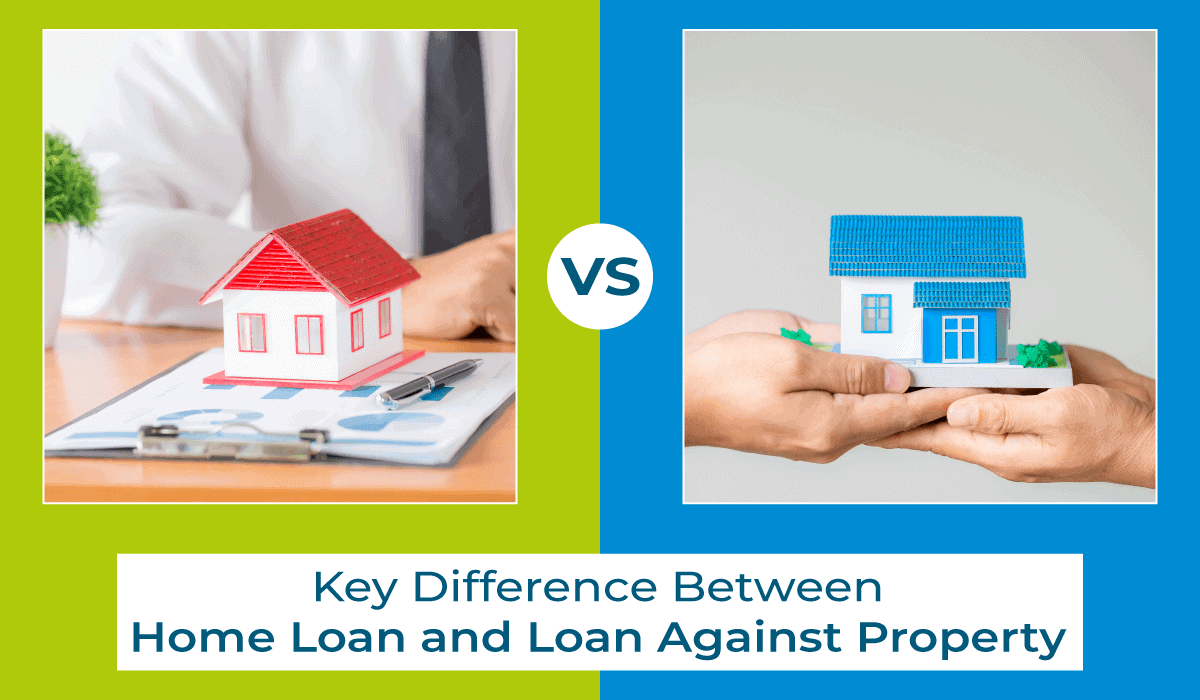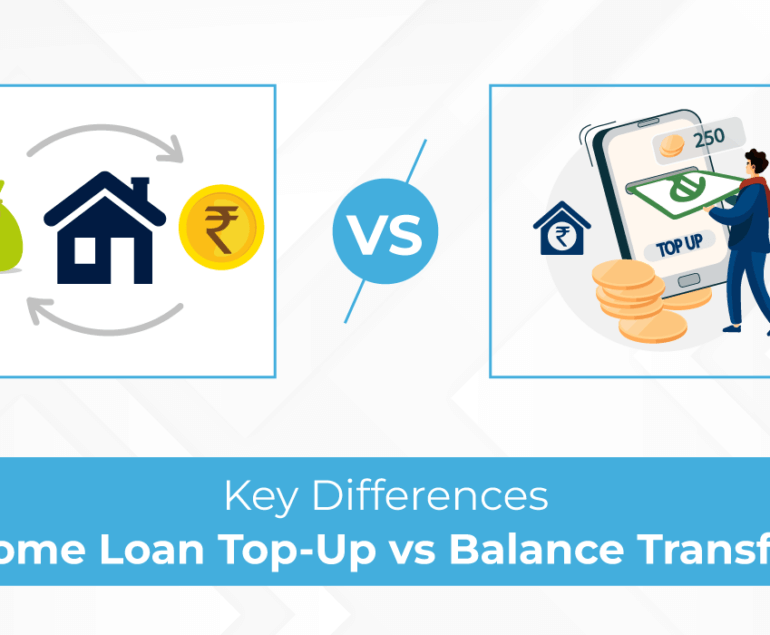Many people get confused between a home loan and a property loan. So, let us clear the doubt for you today. A home loan is usually taken to buy a new property, whereas a loan against property is taken against the property that you already own. A home loan and a loan against property are two different types of loans. Thus, it is important to understand and know the difference between the two before applying for a loan.
Still Confused Between A Home Loan And A Loan Against Property?
1] What is a Home Loan?
A home loan or a housing loan is a resource that helps you to get the funds required to buy a new house. You can avail home loan by paying a small down payment. The rest can be repaid in EMIs based on the selected tenure. The loan is provided based on different aspects like:
- The current value of the property
- The location of the property
- The age and income of the applicant
- Credit historyand CIBIL score
- Stability – when it comes to the profession and employer category.
1.1] Home Loan Types
You can avail a housing loan from the lender for the following purposes:
- New house purchase
- Land purchase
- Plot purchase
- Home Construction
- Home Improvement
- Home Renovation
- Home Extension
Also Read: 9 Different Types of Home Loans You Should Know About
2] What is a Loan Against Property?
As the name suggests, this loan can be availed against property like your land, office, or even your home. The main difference between a home loan and a loan against property is basically that a home loan is mainly taken to buy a property or home, and a loan against property is taken against an already existing property.
The loan is given on the current value of the property as per the market rates. You can use the loan amount for any legal purposes; be it a personal emergency or a planned expenditure such as expanding your business, marriage of your children, holidays or travelling, or medical purposes.
Also Read: Home Loan vs Plot Loan: What Is the Difference?
3] Difference between a home loan and a loan against property: Things to know
Interest rate:
The rate of interest on a home loan in Mumbai is generally decided by the market value of the property as well as the income of the loanee. If you have a higher income, a good CIBIL score, and work in a reputed organisation, you have a higher chance of getting a lower interest home loan compared to other applicants.
Interest rates are available in two forms; floating and fixed. Fixed interest rates are popular among people wherein a fixed rate is set for a particular period. Simply put, the interest and principles remain constant for the entire tenure. However, this is not the case with floating rates and it varies for home loans. In floating rates, the principal plus interest portion applicable on the home loan varies depending on the loan structure.
The rate of interest applicable on loans against property in Mumbai are high compared to interest rates for home loans. You can choose from fixed and floating rates and just like a housing loan, the borrower can choose whichever interest rate system is more convenient.
Loan to value:
An important distinction between home loans and loans against propertyis that a loan against property grants you around 60% of the property value. As per RBI-issued guidelines, a person can get the maximum loan amount ranging from 75%-90% depending on the loan-to-value ratio. Also, the processing fees for home loans are typically between 0.8% to 1.2% of the total loan amount. Whereas, the processing fees for availing a loan against property are generally fixed at 1.5%.
Usage:
Home loans have limited use i.e., they can only be limited to purchasing a home, plot, property under construction, and the like. The money borrowed as the loan should be used on expenses related to your home.
Whereas, a loan against property is a multi-purpose loan that is obtained by leveraging land to obtain funds for anything ranging from funding your child’s education to expanding your business. A loan against property is secured by using one’s land asset as collateral.
Tenure:
When it comes to tenure, the maximum repayment tenure allowed for a housing loan is 30 years and borrowers can choose the tenure depending on their repayment capacity. Whereas, the maximum repayment tenure available for a loan against the property is roughly around 15 years. You can choose a tenure for the loan between 1 year to 15 years or less, depending upon your repayment capability.
Process of documentation:
Generally, home loans require about 15 days to be approved and sanctioned and additionally, have a simple documentation process. However, loans against property take longer to be processed given banks and lending institutions need to get the property valued as well as obtain and check upon the personal information of the borrower. Banks also conduct a thorough check-up of your property by cross-checking information regarding the previous owners, government records, etc.
The documents required for loans against property and home loans are quite similar. You can apply for the loan with any of the following documents:
- Latest salary slips or proof of income
- Bank account statements for the last 3 to 6 months
- PAN card
- Aadhaar card
- Proof of address (electricity bill, water bill, etc)
- Documents about the property being mortgaged/ purchased
- IT returns
In the case of loans against property, you will also need to have complete paperwork of the property that is being pledged as collateral.
Taxation:
The most noteworthy difference between the two types of loans is the tax exemption that can be availed. While loans against a property usually have no tax benefits, home loans do accompany tax benefits under Section 24 for the interest paid on them as well as under Section 80C for the actual principal amount. You can save up to ₹1.5 lakh in tax deduction with a home loan.
Also Read: Understanding Tax Benefits on Home Loans & How to Claim Them
Still Confused Between A Home Loan And A Loan Against Property?
Conclusion
Considering all the information associated with the difference between home loans and loans against property, one can easily differentiate and prioritise their requirements. Thereby, checking and comparing various loan options offered by several banks and NBFCs.
It is important to read all the terms and conditions before accepting any payment terms. Home loans and loans against property are two similar, yet confusing loans. Thus, it is beneficial to conduct thorough research before applying for either of the two loans.
Real Money Solutions provides you with the optimum interest rate on home loans and loans against property, so that you do not have to worry about paying exorbitant amounts every month for your EMIs.
Get in touch with us for more information.




